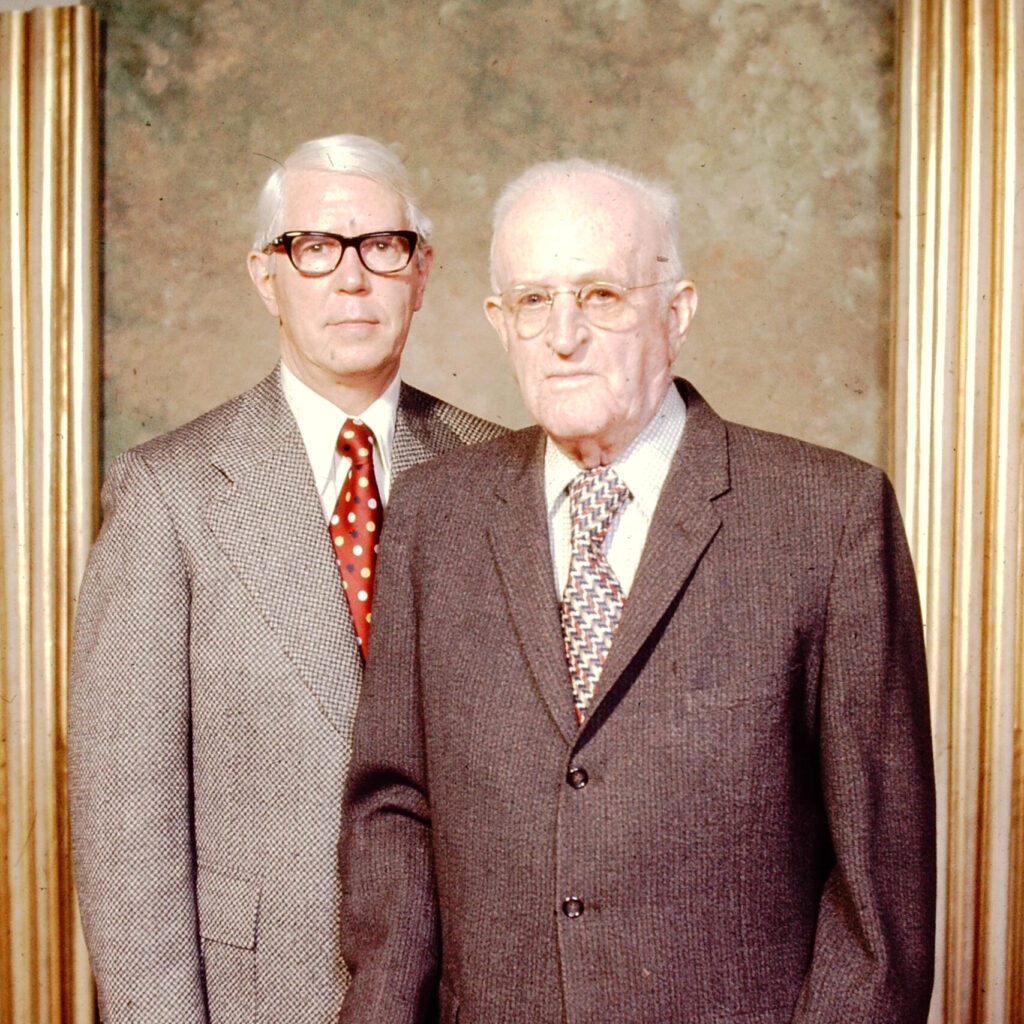The Todd & Sargent name goes back to one of the early pioneers in the grain elevator construction business in Iowa. George Todd moved his family from Eagle Grove to Ames, Iowa in 1933 and started his wood cribbed grain elevator construction business, George Todd Construction. George would design the job, sell it, and serve as his own superintendent. He was well known in the industry, and his work stood for generations across the prairies of the midwest.
Most of George’s jobs were within 100 miles of Ames, allowing him to visit the jobsites once or twice per week. At this time, George employed a handful of people to work on his projects.
Until the 1950’s, most country elevators were wood cribbed. With this method, boards were nailed on top of each other until the desired height was reached, with heavy timbers placed at a diagonal at certain points to later be floored over to form the hopper. When finished, the exterior was often covered with galvanized metal sheeting. In the end, limited bin capacity, susceptibility to fire and termite damage, and a higher construction cost per bushel led to the end of these wood structures in the Midwest.
In the early 1950’s, George’s son-in-law, Clifford Ray, joined him in the business and it was renamed Todd & Ray Construction. Their business was going well when Clifford was tragically killed falling into an empty grain bin in 1954.
With Warren Sargent looking to move back to Iowa from Pennsylvania and George looking for a successor for his business, the two were introduced and formed a partnership called Todd & Sargent Construction Company in 1958, when George was 62 and Warren was 42. Warren’s investment in the partnership was $4,500, with George contributing equipment he had in the business. Their arrangement continued until George sold his interest to Warren in 1962.
George continued to work with the company and served as a valued member of the board of directors. He retired in January 1969 and remained on the board until 1973. George passed away in March 1980 after a lengthy illness.














